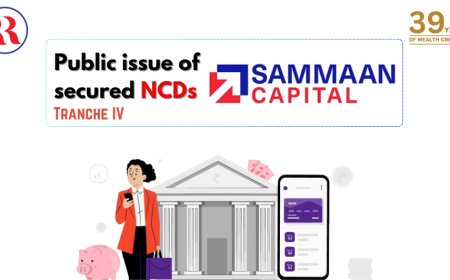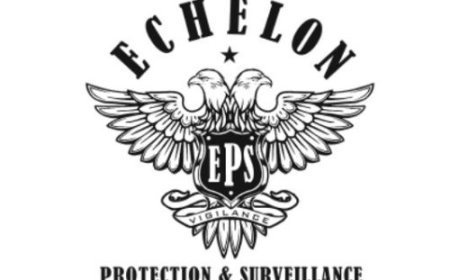How to Check Fssai License Number
How to Check FSSAI License Number The Food Safety and Standards Authority of India (FSSAI) is the apex regulatory body responsible for overseeing food safety and hygiene across the country. Every food business operator (FBO) — from small street vendors to large manufacturing units — must obtain a valid FSSAI license or registration to legally operate. But obtaining the license is only the first st
How to Check FSSAI License Number
The Food Safety and Standards Authority of India (FSSAI) is the apex regulatory body responsible for overseeing food safety and hygiene across the country. Every food business operator (FBO) — from small street vendors to large manufacturing units — must obtain a valid FSSAI license or registration to legally operate. But obtaining the license is only the first step. Verifying its authenticity is equally critical for consumers, regulators, suppliers, and even the businesses themselves.
Knowing how to check FSSAI license number ensures transparency, builds consumer trust, and helps prevent the circulation of unsafe or unregulated food products. In an era where food fraud and counterfeit labeling are rising, the ability to validate an FSSAI license number is no longer optional — it’s a necessity. This guide provides a comprehensive, step-by-step walkthrough on how to check FSSAI license number, along with best practices, tools, real-world examples, and answers to frequently asked questions.
Step-by-Step Guide
Verifying an FSSAI license number is a straightforward process that can be completed in under five minutes using official digital platforms. Whether you're a consumer checking a product label, a distributor verifying a supplier, or a business ensuring compliance, the steps below will guide you through the process accurately and efficiently.
Step 1: Locate the FSSAI License Number
The FSSAI license number is a 14-digit alphanumeric code printed on food packaging, invoices, bills, or official documentation issued by the FSSAI. The format follows a standardized structure:
10-digit state code + 2-digit year of registration + 3-digit serial number + 1-digit check digit
For example: 10520200000012
On packaged food products, the license number is typically found near the manufacturer’s address, often labeled as “FSSAI License No.” or “FSSAI Registration No.” For restaurants, canteens, or food service providers, the license is usually displayed prominently at the establishment or provided upon request.
Always ensure you are reading the correct number. Avoid mistaking the FSSAI number for GSTIN, PAN, or other regulatory IDs. If the number is unclear, blurred, or missing, proceed with caution — this may indicate non-compliance.
Step 2: Visit the Official FSSAI Portal
The only authorized platform for verifying FSSAI license numbers is the official FSSAI website: https://foodlicensing.fssai.gov.in
Do not rely on third-party websites, apps, or search engine results claiming to offer FSSAI verification. These may be outdated, misleading, or malicious. Always navigate directly to the official portal to ensure data accuracy and security.
Step 3: Navigate to the License Verification Section
Once on the FSSAI portal, locate the “Verify License/Registration” section. This is typically found on the homepage under “Public Services” or “License Verification.” Click on the link labeled “Verify FSSAI License/Registration Number.”
If you're unable to locate it immediately, use the search function on the website (Ctrl+F) and type “verify license.” The correct link will appear in the results.
Step 4: Enter the License Number
On the verification page, you’ll see a single input field labeled “Enter FSSAI License/Registration Number.” Carefully type the full 14-digit number without spaces, hyphens, or special characters.
Double-check the digits before submitting. A single incorrect digit — even a misplaced zero — will result in a “Not Found” or “Invalid” response. If you’re unsure about the number, cross-reference it with the physical label or official invoice.
Step 5: Submit and Review Results
Click the “Submit” or “Verify” button. The system will process your request and return one of three possible outcomes:
- Valid License: The system displays the business name, address, license type (Registration, State License, or Central License), category of food activity, and validity period.
- Invalid or Not Found: The license number does not exist in the FSSAI database. This could mean the number is fake, expired, or incorrectly entered.
- Expired License: The license was valid but has lapsed. Operating with an expired license is a violation of FSSAI regulations.
Take note of the business name and address displayed. Compare them with the information printed on the product packaging or provided by the vendor. Mismatches may indicate fraud or unauthorized use of a license number.
Step 6: Download or Save Verification Proof
For businesses, suppliers, or regulatory auditors, it’s advisable to save a screenshot or printout of the verification result. This serves as documented proof of due diligence in case of audits, disputes, or legal inquiries.
Some versions of the portal allow you to generate a PDF certificate of verification. If available, download and store it securely. This is especially important for B2B transactions where compliance documentation is mandatory.
Step 7: Cross-Verify with Other Details
While the license number is the primary identifier, cross-checking additional details adds another layer of assurance:
- Compare the business name on the FSSAI portal with the name on the product label.
- Verify the registered address matches the manufacturing or distribution location.
- Confirm the license category aligns with the business type — for example, a small retailer should have a Registration (Form A), not a Central License (Form B).
- Check the expiration date. Licenses are typically valid for 1 to 5 years, depending on the type.
If any discrepancies arise, do not proceed with procurement, distribution, or consumption. Report the anomaly to the local FSSAI office or food safety department.
Best Practices
Verifying an FSSAI license number is not a one-time task. It should be integrated into routine operational, procurement, and consumer safety protocols. Below are industry-tested best practices to ensure consistent compliance and risk mitigation.
1. Always Verify Before Procurement
Food distributors, retailers, and institutional buyers (such as schools, hospitals, and catering services) must verify the FSSAI license of every supplier before placing orders. This prevents the inadvertent sourcing of non-compliant or unsafe products.
Establish a checklist: license number, validity period, business name, and category. Require suppliers to provide a copy of their license along with the invoice. Store these documents digitally in a secure folder for audit readiness.
2. Train Staff on FSSAI Compliance
Employees involved in procurement, quality control, or retail operations should receive basic training on identifying valid FSSAI numbers and recognizing fraudulent labels. A single untrained staff member can compromise an entire supply chain.
Include FSSAI verification as part of onboarding and annual compliance training. Use real-life case studies to illustrate the consequences of ignoring license validation.
3. Use Technology to Automate Verification
Large food businesses can integrate FSSAI verification into their ERP or inventory management systems. For example, when a new supplier is added, the system can automatically query the FSSAI portal via API (if available) or prompt users to manually verify before approval.
While the FSSAI portal does not currently offer a public API, businesses can use web scraping tools (within legal boundaries) to automate batch verification of supplier licenses — provided they comply with data usage policies.
4. Conduct Periodic Audits
Even if a supplier was verified at the time of onboarding, licenses can expire or be revoked. Schedule quarterly audits of your supplier list to revalidate all FSSAI numbers.
Set calendar reminders for license expiration dates. Many FSSAI licenses are valid for only one year for small businesses — missing a renewal can lead to sudden supply chain disruptions.
5. Educate Consumers
Brands that prioritize transparency can include a QR code on packaging that links directly to the FSSAI verification page. This empowers consumers to validate the license themselves, enhancing brand credibility and trust.
Include a short message on the label: “Scan to verify our FSSAI license” — and link it to the official verification page. This simple step differentiates compliant brands from those cutting corners.
6. Report Suspicious Licenses
If you encounter a license number that appears fake, expired, or mismatched, report it to the FSSAI. You can do so via the “Report a Complaint” section on the official portal. Provide the license number, product details, and where you found it.
Reporting non-compliant businesses helps protect public health and ensures a level playing field for ethical operators.
7. Avoid Common Mistakes
Here are frequent errors to avoid:
- Entering a 13-digit number — always confirm it’s 14 digits.
- Confusing registration numbers with license numbers — both are valid, but they follow different formats.
- Assuming a license is valid because it’s printed on packaging — counterfeit labels are common.
- Not checking the expiration date — a license can be valid for years, but it’s not perpetual.
- Using mobile apps or third-party websites — only the FSSAI portal is authoritative.
Tools and Resources
While the official FSSAI portal is the primary tool for verification, several complementary resources can enhance your ability to manage, track, and understand FSSAI compliance.
Official FSSAI Portal
https://foodlicensing.fssai.gov.in
This is the only source of truth for FSSAI license verification. It is maintained by the Food Safety and Standards Authority of India and updated in real time. All license data — including new registrations, renewals, and cancellations — is reflected here.
FSSAI Mobile App (FSSAI Compliance)
The FSSAI has developed a mobile application called “FSSAI Compliance” for Android and iOS devices. While primarily designed for inspectors and auditors, it includes a license verification module that allows users to scan QR codes on packaging and instantly retrieve license details.
Download the app from the Google Play Store or Apple App Store by searching for “FSSAI Compliance.” Use it to verify licenses on the go — especially useful for retail staff, food delivery personnel, and quality inspectors.
FSSAI Guidelines and Regulations
For deeper understanding, refer to the FSSAI’s official publications:
- FSSAI Licensing and Registration Regulations, 2011 — outlines eligibility, categories, and application procedures.
- Food Safety and Standards (Packaging and Labeling) Regulations, 2011 — specifies mandatory labeling requirements, including FSSAI number placement.
- FSSAI Annual Reports — provide insights into compliance trends, enforcement actions, and violations.
All documents are available for free download at https://fssai.gov.in under the “Regulations” section.
State Food Safety Authorities
Each Indian state has its own Food Safety Department that works under FSSAI guidelines. These departments maintain regional databases and can assist with localized queries.
For example, if a license is registered in Maharashtra, you can contact the Maharashtra Food Safety Department for additional verification. Their websites often provide downloadable lists of licensed businesses in specific districts.
Third-Party Compliance Platforms
Several enterprise software providers offer FSSAI compliance modules integrated into supply chain management systems. Examples include:
- ERPNext Food & Beverage Module — allows users to input and validate FSSAI numbers during vendor onboarding.
- Zoho Inventory + FSSAI Validator Plugin — flags suppliers with invalid or expired licenses.
- NetSuite Food Industry Suite — includes compliance tracking with alerts for license expirations.
These tools are ideal for large-scale food manufacturers, exporters, and multi-location retailers. While they require investment, they significantly reduce manual errors and audit risks.
QR Code Generators
Businesses can generate QR codes linking to their FSSAI verification page using free tools like QR Code Monkey, QRStuff, or Google’s QR Code Generator. Embed the QR code on packaging, websites, or invoices.
When scanned, the QR code redirects users to the FSSAI verification page pre-filled with the business’s license number — making validation effortless for consumers.
Real Examples
Understanding how FSSAI verification works becomes clearer with real-world examples. Below are three scenarios — one for a consumer, one for a distributor, and one for a regulatory officer — illustrating practical applications.
Example 1: Consumer Verifying a Packaged Snack
Sarah purchases a packet of chips from a local supermarket. On the back of the pack, she sees: “FSSAI License No.: 10202100001234”
She opens her smartphone, navigates to https://foodlicensing.fssai.gov.in, and enters the number. The system returns:
- Business Name: Crunchy Snacks Pvt. Ltd.
- Address: Plot No. 12, Industrial Area, Faridabad, Haryana
- License Type: State License
- Validity: 01/04/2021 to 31/03/2026
Sarah confirms that the address on the packaging matches the one displayed. The license is valid for five years — a standard duration for State Licenses. She feels confident about the product’s safety and shares the verification result with her family.
Example 2: Distributor Checking a New Supplier
FoodLink Distributors is considering partnering with a new manufacturer of organic honey. The supplier provides an FSSAI number: 09202200005678
The procurement team verifies the number on the FSSAI portal and receives:
- Business Name: PureBee Organics
- Address: Village Jhiri, District Samba, Jammu & Kashmir
- License Type: Registration (Form A)
- Validity: 15/06/2022 to 14/06/2023
The team notices the license is a Registration — which is correct for small-scale honey producers. However, the validity expires in less than a month. They contact the supplier and request proof of renewal. The supplier provides a renewal receipt dated 10/06/2023, confirming the license has been extended to 2028.
Based on this verification, FoodLink approves the partnership and adds the supplier to their approved vendor list.
Example 3: Regulatory Officer Investigating a Violation
A food safety inspector receives a complaint about a restaurant serving unlicensed food. The restaurant displays a license number on its wall: 11202000000987
The officer enters the number into the FSSAI portal and receives: “License Not Found.”
He then cross-checks the restaurant’s name and address against the FSSAI database of licensed establishments in Delhi. No match is found. He also checks the restaurant’s GST registration — which is valid — but confirms no FSSAI registration exists.
The officer issues a show-cause notice, halts operations, and initiates legal proceedings. The restaurant owner later admits to forging the license number to avoid compliance costs. The case is forwarded to the local court.
This example underscores the critical role of verification in enforcement and public protection.
FAQs
What is the difference between FSSAI Registration and FSSAI License?
FSSAI Registration (Form A) is mandatory for small-scale food businesses with an annual turnover of up to ₹12 lakh. It is issued by the State Food Safety Department and typically valid for 1 to 5 years. FSSAI License (Form B) is required for larger businesses — including manufacturers, importers, and multi-state operators — with turnover exceeding ₹12 lakh. Licenses are issued by either State or Central authorities depending on scale. Both are verified the same way, but the license number format and issuing authority differ.
Can I verify an FSSAI number without internet access?
No. The official FSSAI verification system is web-based and requires internet connectivity. However, if you have previously verified a license and saved the result, you can refer to your records offline. Always re-verify before any new transaction.
What should I do if the FSSAI portal shows “License Not Found”?
First, double-check the number for typos. If confirmed correct, the business may be operating illegally. Do not purchase or distribute their products. Report the case to your local Food Safety Department or through the FSSAI complaint portal.
Is the FSSAI license number the same as the license ID?
Yes. The 14-digit number printed on packaging or documents is the official license ID. It is also referred to as the FSSAI Registration Number or FSSAI License Number interchangeably, depending on the business category.
Do all food businesses need an FSSAI license?
Yes. All food business operators — including hawkers, cloud kitchens, e-commerce sellers, and restaurants — must register or obtain a license under FSSAI. There are no exemptions based on size or mode of operation. Failure to comply is punishable by fines or closure.
How often should I verify a supplier’s FSSAI license?
Verify at the time of onboarding and then annually. Set reminders for license expiration dates, especially for small businesses whose licenses are often valid for one year.
Can I check the FSSAI license of a restaurant online?
Yes. Enter the restaurant’s FSSAI license number on the official portal. The result will show the business name, address, license type, and validity. If the restaurant refuses to provide the number, it may be operating without a license.
What happens if a business uses a fake FSSAI number?
Using a fake or expired FSSAI number is a criminal offense under the Food Safety and Standards Act, 2006. Penalties include fines up to ₹10 lakh, imprisonment for up to six months, and permanent closure of the business. Repeat offenders face harsher consequences.
Are imported food products required to have an FSSAI license number?
Yes. All imported food products must carry a valid FSSAI license number of the importer. The importer must hold a Central License, and the number must be printed on the packaging. Verify this number using the FSSAI portal to ensure compliance.
Can I verify multiple FSSAI numbers at once?
The official portal allows verification of one number at a time. For bulk verification, businesses must use internal systems or third-party tools that allow manual batch entry. Automated API integration is not publicly available as of now.
Conclusion
Knowing how to check FSSAI license number is not merely a regulatory formality — it is a fundamental pillar of food safety, consumer rights, and ethical commerce. In a market flooded with products of varying quality and origin, the FSSAI license serves as the most reliable indicator of compliance, accountability, and trustworthiness.
For consumers, it’s the key to making informed choices. For businesses, it’s the foundation of supply chain integrity and legal protection. For regulators, it’s the primary tool for enforcement and public health safeguarding.
By following the steps outlined in this guide — locating the number, using the official portal, cross-verifying details, and adopting best practices — you empower yourself to act with confidence and responsibility. Whether you’re a parent buying snacks for your child, a procurement officer sourcing ingredients, or a food entrepreneur ensuring your own compliance, verifying the FSSAI license number is a simple act with profound consequences.
Never assume. Always verify. And when in doubt, report. The health of millions depends on it.




























